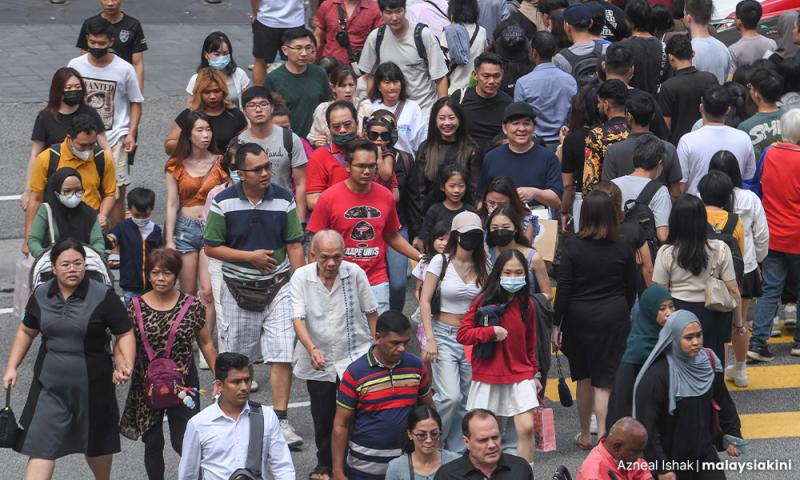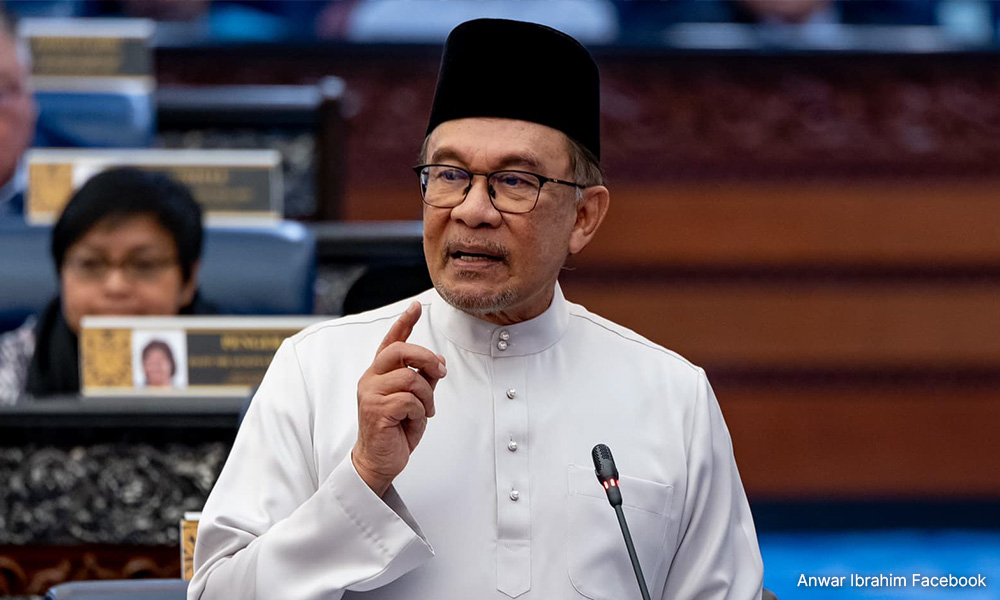

S Thayaparan
Published: Oct 21, 2024 1:58 PM
“The fact is the Syariah Courts (Criminal Jurisdiction) Act 1965 (Amendment) Bill will never be enforced on non-Muslims because the act itself states that it only involves Muslims.”
Published: Oct 21, 2024 1:58 PM
“The fact is the Syariah Courts (Criminal Jurisdiction) Act 1965 (Amendment) Bill will never be enforced on non-Muslims because the act itself states that it only involves Muslims.”
- Deputy Minister in the Prime Minister’s Department (Religious Affairs) Zulkifli Hasan
COMMENT | RUU355 is coming down the pipeline. Over the decades ever since these amendments were proposed, the religious far right, the deep Islamic state and culture war warriors have been pushing for these amendments as an amelioration of secular democratic first principles.
Indeed in 2018, PAS’ big cheese, Abdul Hadi Awang, said in the party’s muktamar that this project was long in gestation and that it was a virtue of PAS to play the long game - “This proves the determination of PAS, with patience and wisdom (hikmah), to realise this agenda.”
Prime Minister Anwar Ibrahim just last year in the midst of brewing the law in Madaniville claimed that PAS bringing up this issue now that they were in the opposition was just “cheap politics”.
As reported in the press - “That’s not Islamic, that’s cheap politics,” he told the media when asked to comment about PAS asking Putrajaya when it will table the amendments to Act 355.
The prime minister is right though. Why didn’t PAS or Bersatu bring up this issue when they were in power? Keep in mind that Bersatu was accused of being in DAP’s pocket when they would not touch this issue with a 10-foot pole back in the day.
In 2017, then-Umno information chief Annuar Musa as reported in the press said that the failure of Bersatu president Muhyiddin Yassin in stating the party’s stand could be because he could be overshadowed by the decision of the DAP-dominated opposition pact, which openly rejected the bill.
Why stir issue now?
So rational people have to ask themselves why all these religious uber alles agitators did not want to raise this issue when they were in power.
The answer is simple. They did not want to be in a position of power when this act blew back against the ruling democratic regime. They did not want to be in power when the religious apparatus flexed its power and there was conflict between the civil and religious apparatus of this country.

The question then becomes, why would Anwar want to stir this issue up now? Together with the mufti bill, this only consolidates power with the religious class, which includes PAS and the far religious elements in all mainstream Malaysian parties and further diminishes the influence of the supposedly secular DAP.
And what of the DAP? Lim Guan Eng in 2017 described the “cheap politics” of Umno and its allies and wondered why anyone would continue to support Umno after its mass deception with regard to the political gamesmanship of this Act.
As reported in the press - “Clearly the perks and privileges of government office are more important than principles. Yet, the non-Umno BN component parties try to cover up their failure by pinning the blame on DAP.”
Furthermore, just three years ago, Lim said that Malaysians don’t buy that this Act will not affect non-Muslims.
Religion’s conflict with secularism
Just last year the prime minister made two statements when it came to the religion of the state and its conflict with secular democratic norms.
The first was “There is no issue about complete separation of state and religion because Islam is the religion of the federation, but it is not a theocratic state where you can impose Islamic laws on everybody, including non-Muslims.”

The second was “The majority of Muslims have been told that secularism means complete separation of state and religion based on the influence and experience of the Holy Roman Empire.
“Now, that’s not how Muslims should understand it. The state has secular elements but religious values must be embedded.”
When anyone talks about “embedded” in the Malaysian context, we have to be clear about one thing. What we are talking about is not only legal measures but also norms and observances by not only the federal government but also state governments.
What we are talking about is a bundle of legal, cultural and religious diktats merged with political narratives that determine policy. This has led to numerous cases where non-Muslims have been subject to religious laws over the decades.
Some examples
Here are but a few examples. Non-Muslims have had their children unilaterally converted and kidnapped, with the state security apparatus colluding with the religious bureaucracy to undermine civil law.
Non-Muslims have been prohibited from using certain words deemed appropriate only for Muslims. Non-Muslims have been told who can and cannot enter our religious places of worship.

Non-Muslims economic livelihoods have been threatened by religious policy because our business is deemed haram. Non-Muslims have had religious vigilantes walking around shopping malls demanding we submit to their sensitivities.
Non-Muslim school-going children have been subjected to religious enticement by teachers. Non-Muslim religious texts have been vilified by foreign or local preachers.
Non-Muslim places of worship have been subjected to the scrutiny of provocateurs who claim we are secretly converting Muslims. Non-Muslims have had our religions demonised by the political establishment to secure votes.
Non-Muslim religious personalities have been kidnapped. Non-Muslims have been told that our religious beliefs are a threat to Muslims.
Non-Muslims have been told to dress decently as though they are, by nature, indecent people and little napoleons hold court in government buildings. Non-Muslims have been told that they are the cause of corruption in this country.
Non-Muslims have had their economic livelihood determined by religious dogma. Non-Muslims have been vilified because they engage in the political process.
Consultation?
Hence this farcical idea that laws and religious norms embedded in the political system will not affect non-Muslims is pure horse manure.
Of course, the narrative now is that this Act is not the same as when PAS had advocated for it and apparently non-Muslim stakeholders would be involved in this process.

So wait, non-Muslims have been warned not to interfere in the religion of the state and now we are expected to believe that non-Muslim stakeholders’ input would be considered?
God’s honest truth is that the narrative that religious laws will not affect non-Muslims is merely a talking point. No government will ever give this talking point legal effect.
Indeed no political coalition will ever guarantee that religious laws will not affect non-Muslims. Why, because those who advocate for these kinds of laws understand that religious laws influence and erode democratic guardrails.
That is the plan.
S THAYAPARAN is Commander (Rtd) of the Royal Malaysian Navy. Fīat jūstitia ruat cælum - “Let justice be done though the heavens fall.”

No comments:
Post a Comment